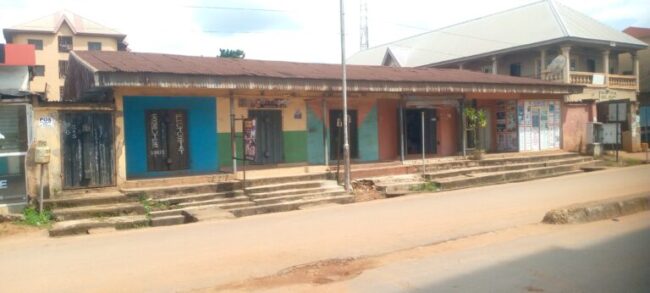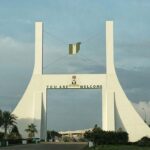The two-day sit-at-home order declared by the Indigenous People of Biafra (IPOB) in the Southeast region of Nigeria recorded total compliance in Anambra State on Monday, despite efforts by Governor Chukwuma Charles Soludo to convince residents, particularly traders, to resume normal activities.
Our correspondent, who monitored the situation, observed that economic activities were crippled in the state capital, Awka, and schoolchildren were turned back at their various schools.
All children who went to school on Monday were asked to return home following the sit-at-home order affecting the Southeastern states of Anambra, Abia, Enugu, Imo, and Ebonyi.
Banks, shops, and private establishments remained closed, as many feared attacks by unidentified persons.
In Awka, most shops were under lock and key, and vehicles were absent from the roads, leaving a few individuals with one or two businesses either trekking or forgoing their engagements.
A tricycle operator in Awka, Celestine Emma, who spoke to the Nigerian Tribune about the development, said, “It is only a madman that could venture onto the road when there are no security personnel around on days like this.”
He added that people were afraid to come out for their businesses because “the government does not provide enough security to boost their morale.”
In Onitsha, a trader, Mr. Augustine Chidebere, and in Nnewi, Comrade Ndukwe James, in their separate observations, said the full compliance was a strong signal that IPOB was “taking over governance of the Southeast region” and that, in no distant time, they may “assume total control of the political and socio-economic structures of the region.”
They argued that the only solution to the unrest, which has led to the deaths of many Igbos, particularly the youth, in Igboland, is for the federal government to conduct a referendum.
ALSO READ THESE TOP STORIES FROM NIGERIAN TRIBUNE
WATCH TOP VIDEOS FROM NIGERIAN TRIBUNE TV
- Let’s Talk About SELF-AWARENESS
- Is Your Confidence Mistaken for Pride? Let’s talk about it
- Is Etiquette About Perfection…Or Just Not Being Rude?
- Top Psychologist Reveal 3 Signs You’re Struggling With Imposter Syndrome
- Do You Pick Up Work-Related Calls at Midnight or Never? Let’s Talk About Boundaries







